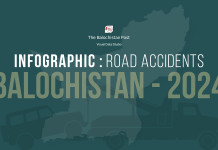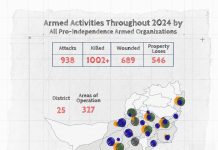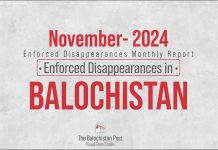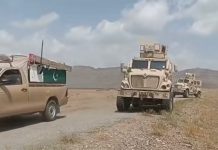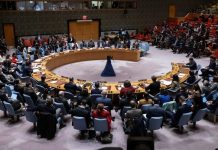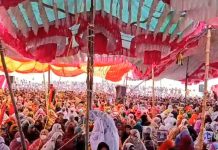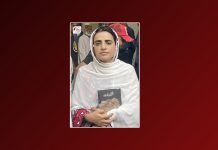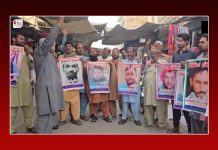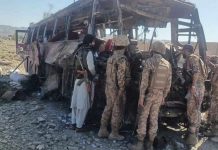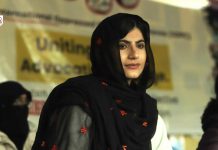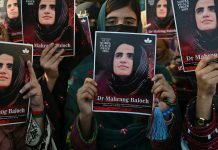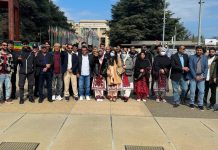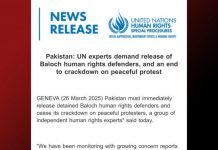Iran cover-up of deaths revealed by data leak, says BBC report
An investigation by the Persian branch of the BBC has found that the actual Covid-19 death toll in Iran is almost 42,000, far above the official count of 17,000. The number of people affected by the virus is almost double the official toll – 451,024 as opposed to 278,827. Despite the revelation, the official numbers still rank Iran the worst-hit country in the middle-east.
According to BBC, the first case of Covid-19 was confirmed on January 22, almost a month earlier than the official reporting. In March, the rise of deaths was much steeper – the official figure was almost five times lower than the actual tally. The considerable undercounting of the death toll alludes that the Iranian authorities are deliberately suppressing the reporting. Despite the reports by the journalists inside Iran and warnings from various experts about the consequences, Iran was still adamant in acknowledging not even a single case in the country. When the first acknowledgement finally came on 19 February, 52 people had already died.
BBC says that it had received that data from an anonymous source, but it also includes “details of daily admissions to hospitals across Iran, including names, age, gender, symptoms, date and length of periods spent in hospital, and underlying conditions patients might have.”
Even before the investigation statistics, many had doubted the official Covid-19 death toll in Iran. It was among the first countries to witness the exponential growth of the coronavirus, along with China, Italy and Spain. The daily cases escalated to 3000 in March, before the government announced a lockdown and ordered the closure of mosques, bazaars, malls and other places of gathering, and banned travel between cities. There has been persistent doubt about the official Covid-19 death toll throughout the pandemic. In the early months, satellite images showed that mass graves were dug in Qom, Iran’s seventh largest metropolis and the initial hotspot of the coronavirus. Many doubted that Iran might be trying to clandestinely whitewash the actual death count of the virus by dumping the dead in these graves.
At that time, the official death toll was 12, a significantly lower number as the other hard-hit countries had reported hundreds of deaths. An Iranian legislator belied these numbers, saying that he was cognizant of at least 50 Covid-related deaths. A video surfaced in April that was allegedly from a mortuary in Qom, showing rooms lined with the dead bodies of the Covid-19 victims. A worker in the footage claimed that many of the bodies had been lying there for five or six days. BBC says that Qom is still the worst-hit city in Iran, with almost one death for every 1000 residents.
Another hint of the size of the outbreak came last month when Hassan Rouhani, Iran’s President, quoted a health ministry study that estimated 25 million people in the country might have been infected with the virus, with another 35 million at the risk in the succeeding months.
Most of the restrictions were eased in May to recover Iran’s sanctions-stripped economy. As people started to gather in markets, parks and mosques, the cases once again soared. The Iranian health ministry said that 215 had died on Monday – on top of 200 deaths on the previous day – the highest daily count in a month.
BBC refers to multiple reasons for the Covid-19 cover-up. The pandemic hit Iran at the anniversary of its 1979 Islamic revolution and with the parliamentary elections. That was the opportunity for the Islamic Republic to demonstrate its popular support, which it could not afford to lose due to the virus. Ayatollah Ali Khamenei, the Supreme Leader of Iran, accused that some forces want to exploit the pandemic to undermine the elections.
Even before the pandemic, Iran was not faring any better. In late 2019, Iran raised the petrol prices, engendering a massive outcry. The forces attempted to violently quell the protests, killing hundreds of protestors within few days.
Following the assassination of the Qasem Soleimani, a top Iranian general and the commander of the Quds Force, in a drone strike in Baghdad, Iraq, by the United States, the Iranian response was also problematic. The Iranian forces mistakenly shot down a Ukrainian Airliner shortly after it took off from the Tehran International Airport, killing all 179 souls on board. Iran tried to cover-up the incident for three days but was forced to acknowledge it on-air.
In direct contrast to the BBC investigation, the health ministry of Iran claims that its reports to the World Health Organization on the Covid-19 death toll are “transparent” and “far from any deviations.


